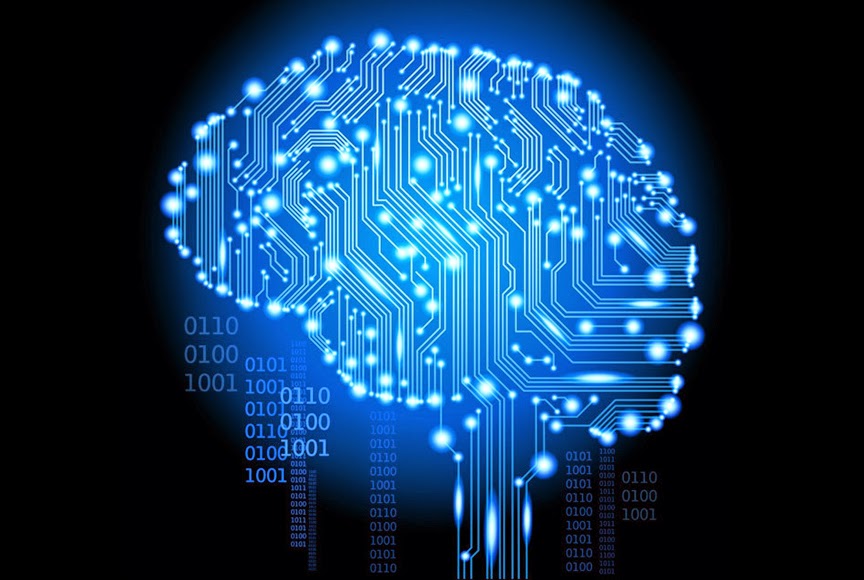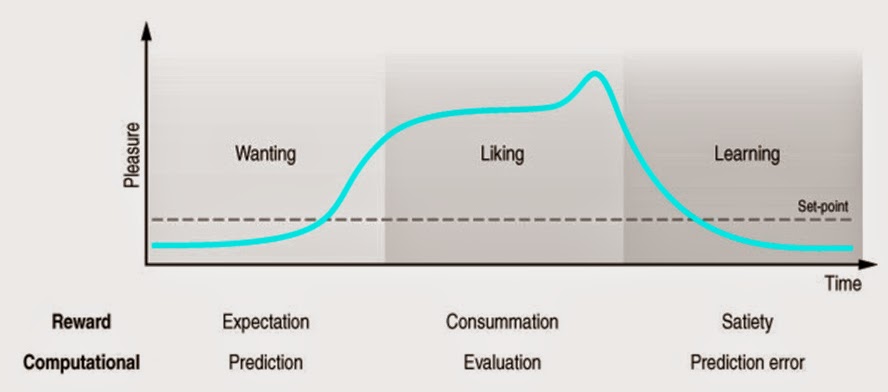Neuroscience

Neural prosthetics, brain-computer interfaces (BCI), “closed-loop” deep brain stimulation (DBS) devices, and a world without human brain disorders. The first three of these are already here... is the last one possible?
In the utopian world of The Hedonistic Imperative, an ambitious, admirable (and unlikely) 1995 manifesto by philosopher David Pearce, the goal is to “eradicate suffering in all sentient life” through paradise engineering — which involves sophisticated applications of nanotechnology, genetic engineering, and psychopharmacology. And going beyond the eradication of suffering, “Life-long happiness of an intensity now physiologically unimaginable can become the heritable norm of mental health.” 1
Lest you think such speculation is limited to those wacky transhumanists, respected neuroscientists Kent Berridge and Morten Kringelbach have written seven reviews on the neuroscience of happiness and pleasure and well-being. In contrast to the vegan and animal rights supporter Pearce, however, Berridge & Kringelbach (e.g., 2012) see animal research as the key to unlocking the brain mechanisms of human pleasures.
Sure, we have BRAIN 2025 and the DARPA deep brain stimulation awards. But we're getting ahead ourselves here, aren't we? Using neuroscience to alleviate human suffering takes precedence over the attainment of “a sublime and all-pervasive happiness” in wealthy Western post-industrial societies (doesn't it)? Doesn't it??
“Neurofutures that aren't mine”
There used to be a blog called Neurofuture (“Brain Science and Neofuturism”), written by Sandra K. It covered topics like HedWeb and neuroscience nanotechnology and NeuroArm and the Blue Brain Project back in 2006-2007.
Since February 2012, there's been an unrelated NeuroFuture twitter feed @NeuroFutureNews (“Mind-blowing tweets! Follow me if you are interested in brain, bionics, BCI, robotics and mind-controlled news”). A guy named wolfgang berke has had the @neurofuture account since March 2010, but he hasn't tweeted once.
And now, there's NeuroFutures 2014, a conference in Seattle starting tomorrow:
If you're already in Seattle, you can attend a public lecture by a prominent DBS neurosurgeon today at 7 PM:
Organizational and industry sponsors include Center for Sensorimotor Neural Engineering, Allen Institute for Brain Science, Cyberonics, and Neurotech Business Report,3 among others.
So what will it be... better living through chemistry (pharmaceuticals), biotechnology, or engineering? With conference sessions on BCI and Neuromodulation Innovations, Learning, Plasticity, and Adaptation in Neural Interfaces, and The Past, Present, and Future of Closed-loop Neuromodulation, one might think it's a great time to be a Neuroengineer at places like the Center for Sensorimotor Neural Engineering, the Brain-Machine Interface Systems Laboratory, and the Neural Prosthetic Systems Laboratory.
Footnotes
1 The HedWeb manifesto has been online in its entirety since 1995, I believe. For many years, the labyrinth of links and early-acquisition domain names such as biopsychiatry.com, huxley.net, mdma.net, opioids.com, cannabis.net, and general-anaesthesia.com were entirely unattributed, except for affiliation with an organization known as BLTC RESEARCH. But be careful, or you could fall down the rabbit hole of supercentenarian.com or reproductive-revolution.com or oxytocin.org or sensualism.com or nootropics.com or.....2
2 OMFG! There are 2,244 PARADISE-ENGINEERING BLTC WEBSITES as of JUNE 2014:
3 Neurotech Business Report was the first to break the news about the failed BROADEN clinical trial for treatment-resistant depression, and they've continued their close coverage of the neuromodulation market.

Figure 1. Pleasure Cycles (Berridge & Kringelbach, 2012), from Building a neuroscience of pleasure and well-being.
- Kurzweil Lecture
MIT World has released a streaming 35:00 Ray Kurzweil lecture titled Innovation Everywhere—How the Acceleration of “GNR” (genetics, nanotechnology, robotics) Will Create a Flat and Equitable World. Say goodbye to cancer and heart disease within...
- The Hedonistic Imperative
HedWeb is a detailed resource for cosmetic neurology (including psychopharmacology). Here's their mission statement: The Hedonistic Imperative outlines how genetic engineering and nanotechnology will abolish suffering in all sentient life. The...
- And The Darpa Deep Brain Stimulation Awards Go To...
...UCSF and MGH! Work on DARPA’s Systems-Based Neurotechnology for Emerging Therapies (SUBNETS) program is set to begin with teams led by UC San Francisco (UCSF), and Massachusetts General Hospital (MGH). The SUBNETS program seeks to reduce the severity...
- Broaden Trial Of Dbs For Treatment-resistant Depression Halted By The Fda
Webpage for the BROADEN™ study formerly run by St. Jude Medical It's become mainstream these days to say that psychiatric disorders are neural circuit disorders. You can even read all about it in the New York Times! Cognitive training and neuromodulation...
- The Decade Of Reverse Engineering The Brain (2005 - 2015)
We are witnessing a renaissance in brain science and technology. Science is examining the brain in ever increasing detail to discern important components of brain structure and function, all of it leading to a reverse engineering of the brain. Within...
Neuroscience
The Neuroscience of the Future

Neural prosthetics, brain-computer interfaces (BCI), “closed-loop” deep brain stimulation (DBS) devices, and a world without human brain disorders. The first three of these are already here... is the last one possible?
In the utopian world of The Hedonistic Imperative, an ambitious, admirable (and unlikely) 1995 manifesto by philosopher David Pearce, the goal is to “eradicate suffering in all sentient life” through paradise engineering — which involves sophisticated applications of nanotechnology, genetic engineering, and psychopharmacology. And going beyond the eradication of suffering, “Life-long happiness of an intensity now physiologically unimaginable can become the heritable norm of mental health.” 1
Lest you think such speculation is limited to those wacky transhumanists, respected neuroscientists Kent Berridge and Morten Kringelbach have written seven reviews on the neuroscience of happiness and pleasure and well-being. In contrast to the vegan and animal rights supporter Pearce, however, Berridge & Kringelbach (e.g., 2012) see animal research as the key to unlocking the brain mechanisms of human pleasures.
Sure, we have BRAIN 2025 and the DARPA deep brain stimulation awards. But we're getting ahead ourselves here, aren't we? Using neuroscience to alleviate human suffering takes precedence over the attainment of “a sublime and all-pervasive happiness” in wealthy Western post-industrial societies (doesn't it)? Doesn't it??
“Neurofutures that aren't mine”
There used to be a blog called Neurofuture (“Brain Science and Neofuturism”), written by Sandra K. It covered topics like HedWeb and neuroscience nanotechnology and NeuroArm and the Blue Brain Project back in 2006-2007.
Since February 2012, there's been an unrelated NeuroFuture twitter feed @NeuroFutureNews (“Mind-blowing tweets! Follow me if you are interested in brain, bionics, BCI, robotics and mind-controlled news”). A guy named wolfgang berke has had the @neurofuture account since March 2010, but he hasn't tweeted once.
And now, there's NeuroFutures 2014, a conference in Seattle starting tomorrow:
NeuroFutures Conference: June 17 - 18, 2014
Thought leaders in research, engineering, industry, and clinical domains will explore how the intersection of neurotechnology innovations in neuromodulation, brain mapping, neuroimaging, big data analytics, and brain computer interfaces will transform our understanding of neural systems and enable life-changing medical treatments.
If you're already in Seattle, you can attend a public lecture by a prominent DBS neurosurgeon today at 7 PM:
NeuroFutures Public Lecture: 7:00 PM, June 16
Dr. Andres Lozano from the University of Toronto will kick off the NeuroFutures summit with a talk on “The Future of Brain Stimulation: Parkinson’s, Depression, Alzheimer’s and beyond" (see his related TED Talk here). Afterwards, he will discuss his work with science educator and author David Heil, and field questions from the audience.
Organizational and industry sponsors include Center for Sensorimotor Neural Engineering, Allen Institute for Brain Science, Cyberonics, and Neurotech Business Report,3 among others.
Why NeuroFutures?
Problem: One in four U.S. adults suffer from a diagnosable neurological disorder and a quarter of these are seriously disabled as a result. These patients endure immense physical and emotional suffering, and their family members and caregivers bear a heavy emotional and financial burden. From a scientific standpoint, the human brain is the most sophisticated computing system in the known universe, and we are only starting to understand how it works.
. . .
Plan: To accelerate the pace and impact of innovation we will bring together neurotechnology thought leaders from different disciplines to exchange ideas and forge collaborations at the two-day NeuroFutures Conference on June 17 and 18, 2014 in Seattle, Washington. We will highlight people and resources in the Northwest that position the region to play a leading role in our NeuroFuture...
So what will it be... better living through chemistry (pharmaceuticals), biotechnology, or engineering? With conference sessions on BCI and Neuromodulation Innovations, Learning, Plasticity, and Adaptation in Neural Interfaces, and The Past, Present, and Future of Closed-loop Neuromodulation, one might think it's a great time to be a Neuroengineer at places like the Center for Sensorimotor Neural Engineering, the Brain-Machine Interface Systems Laboratory, and the Neural Prosthetic Systems Laboratory.
Footnotes
1 The HedWeb manifesto has been online in its entirety since 1995, I believe. For many years, the labyrinth of links and early-acquisition domain names such as biopsychiatry.com, huxley.net, mdma.net, opioids.com, cannabis.net, and general-anaesthesia.com were entirely unattributed, except for affiliation with an organization known as BLTC RESEARCH. But be careful, or you could fall down the rabbit hole of supercentenarian.com or reproductive-revolution.com or oxytocin.org or sensualism.com or nootropics.com or.....2
2 OMFG! There are 2,244 PARADISE-ENGINEERING BLTC WEBSITES as of JUNE 2014:
Paradise-engineering websites (2014)
Good domains for a better world?
3 Neurotech Business Report was the first to break the news about the failed BROADEN clinical trial for treatment-resistant depression, and they've continued their close coverage of the neuromodulation market.
top image via Alternative Media News

Figure 1. Pleasure Cycles (Berridge & Kringelbach, 2012), from Building a neuroscience of pleasure and well-being.
- Kurzweil Lecture
MIT World has released a streaming 35:00 Ray Kurzweil lecture titled Innovation Everywhere—How the Acceleration of “GNR” (genetics, nanotechnology, robotics) Will Create a Flat and Equitable World. Say goodbye to cancer and heart disease within...
- The Hedonistic Imperative
HedWeb is a detailed resource for cosmetic neurology (including psychopharmacology). Here's their mission statement: The Hedonistic Imperative outlines how genetic engineering and nanotechnology will abolish suffering in all sentient life. The...
- And The Darpa Deep Brain Stimulation Awards Go To...
...UCSF and MGH! Work on DARPA’s Systems-Based Neurotechnology for Emerging Therapies (SUBNETS) program is set to begin with teams led by UC San Francisco (UCSF), and Massachusetts General Hospital (MGH). The SUBNETS program seeks to reduce the severity...
- Broaden Trial Of Dbs For Treatment-resistant Depression Halted By The Fda
Webpage for the BROADEN™ study formerly run by St. Jude Medical It's become mainstream these days to say that psychiatric disorders are neural circuit disorders. You can even read all about it in the New York Times! Cognitive training and neuromodulation...
- The Decade Of Reverse Engineering The Brain (2005 - 2015)
We are witnessing a renaissance in brain science and technology. Science is examining the brain in ever increasing detail to discern important components of brain structure and function, all of it leading to a reverse engineering of the brain. Within...
